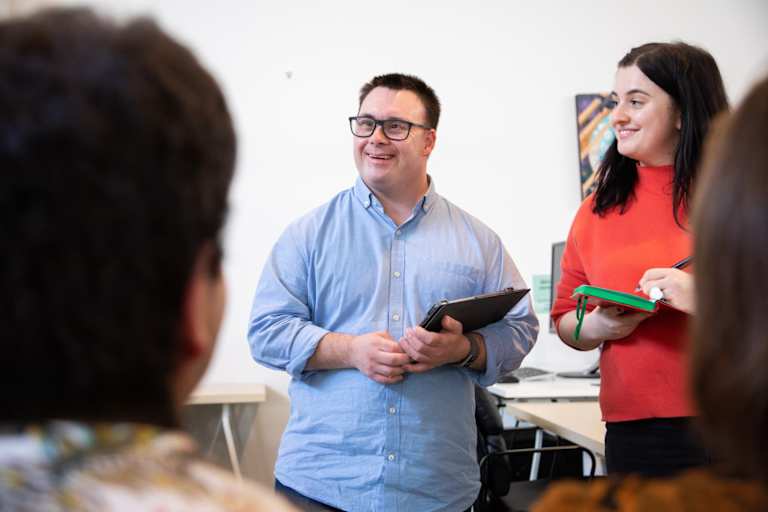How to Become an Licensed Counselor in Iowa
- Licensure Requirements
- How Long Does it Take?
- Out-of-State Licensing
- Licensing Renewal
- Salary Expectations
- Professional Organizations
- FAQ
Are you considering a counseling career? Iowa’s distinguished public school system, inclusive culture, strong universities, and sense of community provide an ideal environment for individuals aiming to practice counseling.
Learn more about Iowa counseling licensure requirements, educational and time commitments, salary expectations, and professional organizations.
Iowa Counselor Licensure Requirements
Iowa provides several options for counseling licensure, regulated by distinct entities. The Iowa Board of Behavioral Health Professionals oversees licensure for licensed mental health counselors and marital and family therapists, while the Iowa Board of Educational Examiners manages school counselors.
Each licensure option maintains separate requirements and standards regarding education, experience, and examinations. Let’s explore each in more detail:
How Long Does it Take to Become a Counselor in Iowa?
The time commitment required for becoming a counselor in Iowa depends on the specific licensure and educational level pursued. The total process may take eight to ten years, considering the time needed to complete undergraduate and graduate degrees, supervised experience, and testing.
Specific factors may increase the time required to gain a Iowa counseling license. For example, LMHCs and MFTs who choose to pursue a doctorate will need several more years of education and experience than their counterparts on a master’s degree track.
Out-of-State Licensing Reciprocity in Iowa
Iowa offers licensure by endorsement to out-of-state mental health counselors and marital and family therapists. Out-of-state applicants must provide evidence of current licensure, including the license issue and expiration date, and any previous or pending disciplinary action.
Out-of-state certified school counselors who completed a school counseling master’s program may obtain Iowa licensure via reciprocity. Applicants must provide official college transcripts, confirmation of previous professional school counseling experience, and a copy of their out-of-state school counseling license.
Candidates should consult state board websites for specific reciprocity details.
How to Renew a Counseling License in Iowa
LMHCs and MFTs in Iowa must renew their license every two years, and may begin the online renewal process up to 60 days prior to the license expiration date. The cost of renewing is $120, with additional fees applied to late renewals. Licensees must complete 40 continuing education hours during each renewal cycle.
Iowa school counselors renew their credentials every five years. Two to four renewal credits are required, depending on years of experience. All renewal candidates must maintain current mandated reporter training for child abuse.
Consult state board websites for the latest information regarding license renewal.
Salary Expectations for Counselors in Iowa
According to the Bureau of Labor Statistics (BLS), some of Iowa’s counselors earn marginally less than the national average counterparts. However, marriage and family therapists in Iowa bring home earnings consistent with the national average, and substance use, behavioral disorder, and mental health counselors earn slightly more than the national average.
Prospective counselors should factor cost of living into this equation, as Iowa boasts the eighth lowest cost of living in the U.S. As the midwest remains one of the least expensive residential areas, Iowa offers an attractive economic landscape for licensed counselors.
| Occupation | Average Hourly Salary | Average Annual Salary |
|---|---|---|
| Educational, Guidance, and Career Counselors and Advisors | $28.32 | $58,910 |
| Marriage and Family Therapists | $34.65 | $72,070 |
| Rehabilitation Counselors | $20.26 | $42,140 |
| Substance Use, Behavioral Disorder, and Mental Health Counselors | $31.71 | $65,960 |
| Counselors, All Other | $26.89 | $55,930 |
Professional Organizations for Counselors in Iowa
- American Counseling Association of Iowa: This association represents licensed counselors and counseling students who reside or work in Iowa. Membership benefits include ethics consultations with a staff expert, professional guidance on establishing a private practice, and 12 free online continuing education courses per year.
- Iowa Mental Health Counselors Association: IMHCA inclusively promotes quality mental health services for all Iowa residents by distinguishing the profession’s identity and influencing public policy to uphold standards of care. The IMHCA’s associated benefits include an annual conference, continuing education, online forums, networking events, a book club, and live interviews with subject experts.
- Iowa School Counselor Association: This organization provides professional promotion and support for Iowa’s school counselors in accordance with the American School Counselor Association’s practices. Membership benefits include career development and skill building via conferences and workshops, and advocacy for student and counselor-related legislation.
Frequently Asked Questions About Iowa Counseling Licensure
You cannot practice therapy without a license in Iowa. The Iowa Board of Behavioral Health Professionals regulates the mental health counseling and marital and family counseling fields. Licensed counselors and therapists must meet education, experience, and competency requirements.


